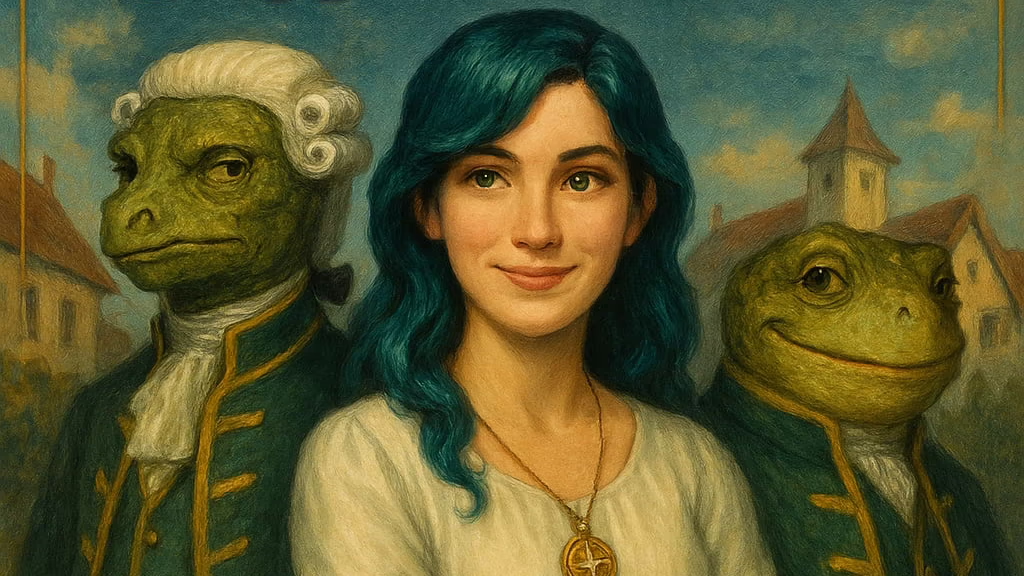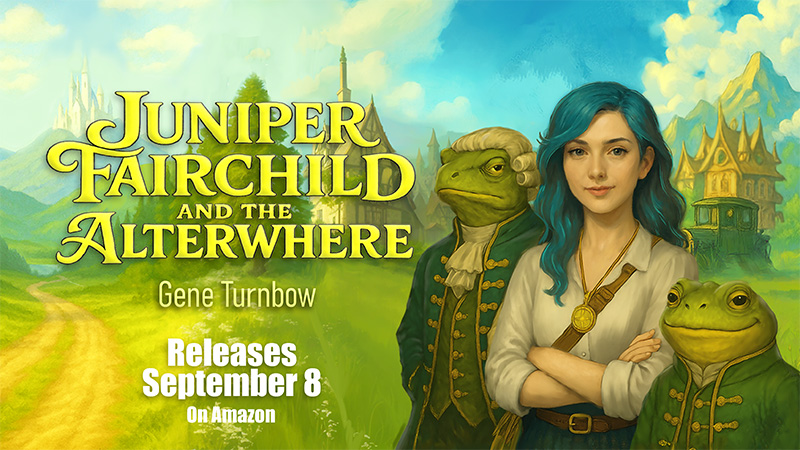Key Takeaways
- The publishing industry has drastically changed in the last 40 years, with traditional pathways for authors becoming obsolete.
- Literary agents have become the new gatekeepers, and competition for securing one is extremely high.
- Authors now receive minimal advances, typically around five thousand dollars, which has not increased in two decades.
- Publishers invest very little in advertising, leaving authors responsible for promoting their own books.
- Self-publishing has gained legitimacy and can serve as proof of marketability for traditional publishers.
I’ve been working on my debut novel Juniper Fairchild and the Alterwhere for a very very long time. You’ve heard that old wive’s tale, the one that says that the number of people who actually finish the books they start is very small.
Turns out that some of those old wives were pretty smart.
I’m writing today about my discoveries about the publishing industry, and wow are things upside down.
How You Broke In 40 Years Ago
In 1980, if you wanted to be a published sci-fi or fantasy author, you wrote for the trade magazines, like Worlds of If or Fantasy and Science Fiction, or Analog, or one of those. Once you had published a bunch of those, and developed a following, then you might be able to submit a manuscript to one of the big five publishers, and they might take a chance on you and publish your book. From there, the publishers would do PR for you and sell the book to bookstores and libraries.
How You Break In Now
Fast forward to today, and all the trade magazines are gone, despite well intentioned efforts to revive them. The stamp of approval as a short story author is no longer available. The publishers are still looking for how much influence you have in the marketplace, but now that’s defined by how big a social media following you have. If you have the skills needed to produce Tiktok videos people actually want to watch, twice a week, and can keep that up for three or four years, you can make anything happen.
The point is that technology has made writing books much easier than it ever was before, so they get a thousand times the number of submissions per year than they did 40 years ago. This has necessitated the emergence of the Literary Agent, and they are now the gatekeepers of the publishing industry. They read through the slush piles (which have been filling up with AI generated slop) so that the publishers don’t have to. And the agents then take 15% of whatever publishing contracts you get from that point forward. They earn their money, to be sure, but the competition to get an agent is now so steep that it’s almost impossible to do it, statistically speaking. Some folks still manage, and those who can crank out four books in a year can make a living at it. There are always the exceptions, like Brandon Sanderson, or John Scalzi, whose book covers have their names bigger than the book titles themselves. But for most of them, that’s not the reality.
Some of the major science fiction and fantasy publishers are currently in serious trouble, by the way. Double Dragon, Ring of Fire Press, and Small Beer Press have all gone out of business in the last five years. Some of them are poisoning their own well by leaning so far over to the right politically that they’re alienating the readers that used to love what they published, and aren’t savvy enough to realize what’s been happening. “Go woke, go broke” isn’t a trend. It’s a death sentence for those businesses who embrace the concept.
And Then It All Goes Wrong
But once you do get an agent (two years have passed) and the publisher gets it published and in their catalog (two more years have passed) then you get an advance against future sales of the book. No, you don’t have to return that advance, but the vast majority of authors get—brace yourself—five grand. For years of your life that you spent writing this book, or however long it took. Five grand. Fifteen percent of which now goes to the agent, so you’ll get maybe two payments over a year’s time, a couple of thousand dollars each. That’s not even rent money for a month in some cases, depending on where you life.
So all that time and effort to get traditionally published, and you end up with four thousand dollars, five years down the road once you finish writing. And to make matters worse, that standard five thousand dollar advance has not increased in size in the last twenty years.
And then once you’ve subjected yourself to all that, you then discover that the publisher is not going to advertise your book. Or promote it in any way. During the Simon & Schuster / Penguin Randomhouse trial a couple of years ago (they were sued because it would make an unregulated monopoly—they lost, by the way, the merger didn’t happen), it was revealed that publishers spend less than 2% of their total revenue on advertising.
All of the sales you get on your book now depend on you to promote the book.
So What the Heck Do We Do Now?
With what fricking budget are we supposed to do this, I wonder? Wasn’t that what we were paying the publishers to do? Well, not anymore. They take their 85% of the sale of each book, and just stopped providing that promotional service while keeping the money.
First of all, this is insane, that’s an insane way to run a business. And second, apart from fronting the costs of cover design, story editing, copy editing, layout design and actually printing the books, the publishers are now doing nothing for you as an author.
At one time authors had no option, but now there’s Amazon’s KDP (Kindle Digital Publishing), Ingram Spark, and Lulu. The first one of these can help you publish your book with no upfront costs at all. The latter two can get you into libraries and bookstores without help from a major publisher. Of course, you have to do your own promotion.
Being an author in 2025 is a pretty hard road. What used to be considered “vanity press” is now how most publishing is actually being done. This is why being self-published is no longer the stigma in the Hugo and Nebula awards as it once was.
And here’s the part that I found astounding: where periodicals used to be the launching pad for getting traditionally published, that market niche has now been replaced by—drum roll, please—self-publishing. That’s right, if you self-publish, and your book does well, then that’s the proof a traditional publisher needs that it’ll be worth putting some muscle behind you and your book. They’re not taking a chance on you at this point. They already know you’re going to do well for them, because they can see you doing it without them.
And that’s the key to this. By the time you get noticed by a major publisher, you’re already doing okay without them. It’s like how banks only loan money to people that don’t actually need the money. The traditional publishers do so little beyond prepping your manuscript for publication and putting a cover on it already, and now they are even more risk averse than at any point in the history of publishing.
Considering that only about 2% of the books traditional publishers release get any advertising whatever from them, and that making back their advance, your chances of doing better without a traditional publisher than with them are actually pretty high. There is actually a 1 in 5 chance that your book will sell fewer than a dozen copies, even with a major publisher.
We Keep Moving Forward
When I started writing “Juniper Fairchild and the Alterwhere”, I had no idea the publishing industry was in this sorry shape. Had I known then, I’m not sure I would have started writing it. Having written it, however, had made me realize something, and that is that I have already defied the odds by finishing the book. I’ve already done the “impossible” part. What’s left is just cracking the self-promotion code, and doing my own marketing. I may not get a six figure payday from it doing it this way, but chances weren’t good I’d even get an agent, let alone that much money. It’s a crapshoot, based more on how big your social media is, not the quality of your book.
I believe in my book. I believe I have written something that will resonate with readers, will give them a world to yearn to visit and return to time and again. I believe in Juniper Fairchild as a character, and I think that over time, people will come to love the universe I’ve created.
So I’m going to keep moving forward, because that’s what we do around here at SCIFI.radio. The whole station is built of dreams. Every daydream is a possible future, and I don’t think I’d mind living in one I made myself.
Don’t give up on your dreams. I’m 68. If I can do this and keep pushing forward at 68, your dreams aren’t out of reach either. If I can, then you can.
Your new universe is waiting.
![]()












